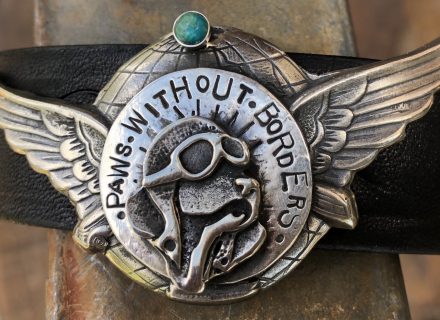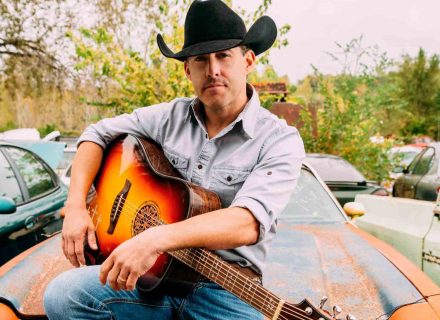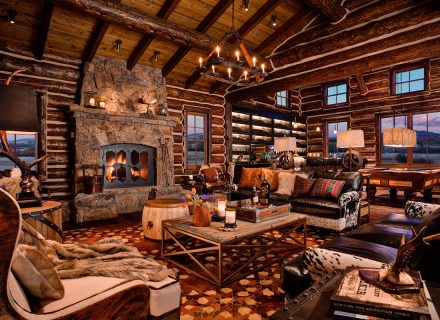With a wildly successful reality TV show behind him, a risk-taking Texan turns his attentions to growing the Magnolia brand and tending to the family farm.
Anyone would marvel at the last five years of Chip and Joanna Gaines’ lives. Not only have they become one of the most recognized and admired couples in pop culture, they’ve leveraged their popularity into a booming lifestyle brand and helped to revitalize their adopted hometown in the process. They’ve also expanded their own brood; the fifth Gaines child was born in June.
The remarkable TV success and public goodwill aimed at this family is perhaps what made the last year of their journey so surprising.
Halfway through 2018, the Waco, Texas-based couple walked away from one of the most watched shows on cable. The HGTV juggernaut Fixer Upper, which lovingly documented the Gaines’ house renovation and design projects for hometown clients, ended at the height of its popularity after five seasons. Joanna served as the relatable visionary behind clean, resourceful interiors, and Chip was the everyman contractor and goofy demo king, always ready to provide loving levity.
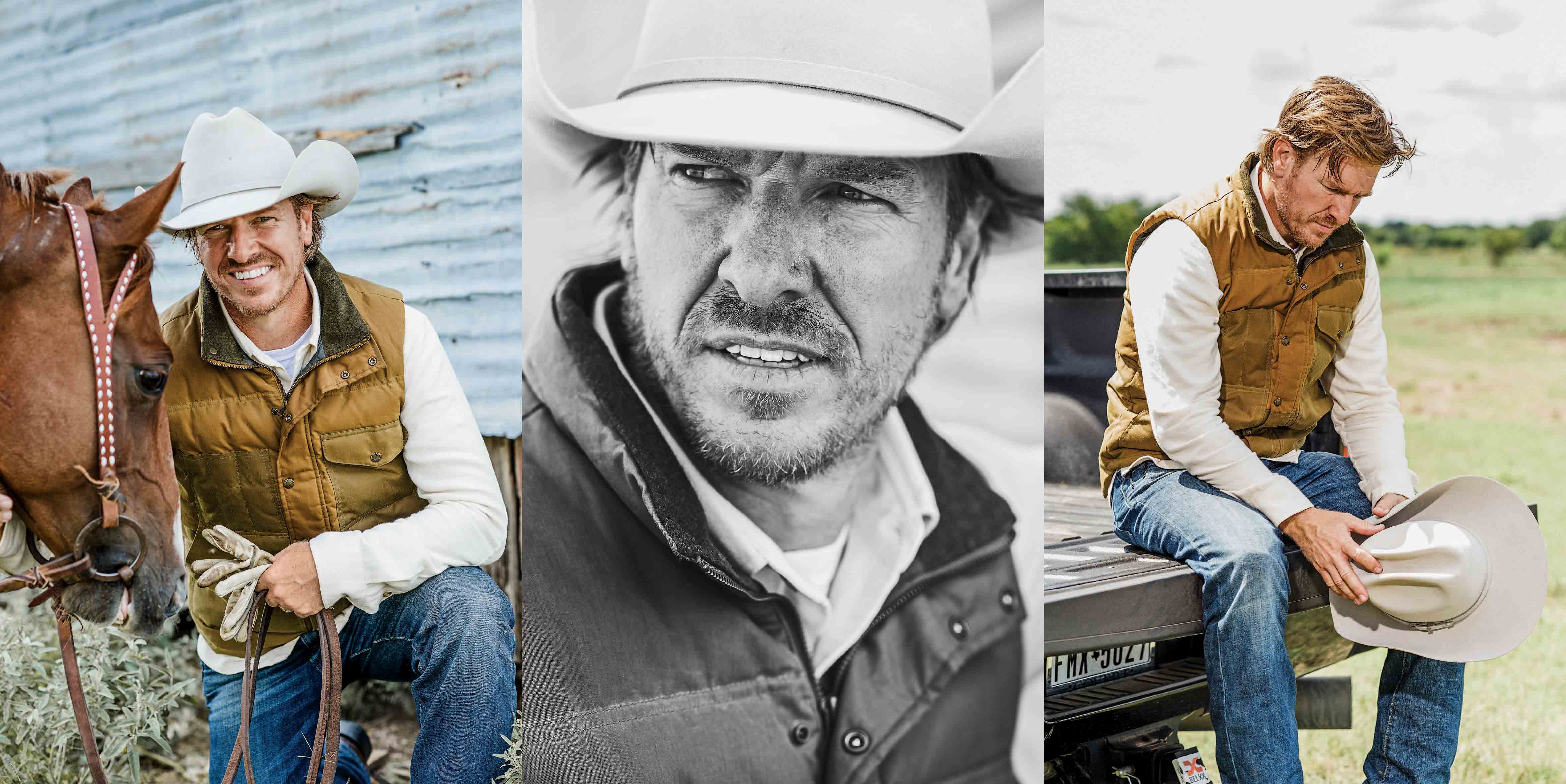
They were the perfect balm for the out-of-control negativity pool that is reality TV. Hardworking but not dry, adorable but not cloying, whimsical but still grounded. And, most important to the concept of reality TV, they were real.
“We’re not really actors, we’re not really TV hosts,” Chip Gaines tells us during a lengthy chat about family and business. “We are who you think we are. We’re the couple you want to go have a coffee with, we’re the couple you want to have a 15-minute chat with on the way to the market.
“The reason that we’re those people is because we do the hard work that is required. We treat each other with respect. We admire one another’s strengths and weaknesses. We pull for each other. We learned that early.”
The 44-year-old New Mexico native turned Texan has been thinking a lot lately about the early life lessons that have carried him into such a fruitful period. Rather than twiddling thumbs or looking for another TV gig, Gaines has kept himself busy — chaotically so, even — tending to his family’s growing array of Magnolia-branded businesses.
There’s the Magnolia Market at the Silos complex in Waco, where more than a million people visit and shop every year. The complex also includes a bakery, Silos Baking Co., and a new homey restaurant, Magnolia Table, is located a few minutes down the road. There are Magnolia-themed events throughout the year, including an inaugural marathon that Chip himself ran. There’s a quarterly lifestyle magazine called Magnolia Journal that the Gaineses oversee. Don’t forget about the real estate, design, and construction businesses that granted them their national TV break to begin with. Chip’s entertaining 2017 business-focused self-help book, Capital Gaines, will be rereleased in February with some added material — in it, he discusses every facet of his family’s growing empire.
With all that in play, Chip still manages to rise extremely early every morning to complete his chores on his and Joanna’s 40-acre farm outside Waco. Talk to him long enough, as we did, and you find that the farm is his primary source of inspiration and personal tranquility. Whether he’s tending to land or caring for cattle, he’s in his element out there, as the sun rises on his family’s next chapter.
Cowboys & Indians: While some fans might not know you’re a longtime farmer and cattleman, you’ve been passionate about this kind of work throughout your life. Tell me about the experiences that shaped your farming dreams.
Chip Gaines: I was a city boy, really. My dad played football at the University of New Mexico, so my sister and myself were both born and at a very young age lived in Albuquerque. But my mom and dad were both Texans, so they ended up back in the Dallas-Fort Worth area in a traditional suburb. And my parents were both brought up in a small town called Archer City, Texas, up by Wichita Falls.
C&I: The home of Larry McMurtry.
Gaines: Yeah, of course. McMurtry’s famous, and The Last Picture Show was shot in that little town. But we would spend the summers at my granddad’s place there just outside of Wichita Falls in little bitty Archer City. And I don’t know what it was about it, but it certainly got in my blood at a very young age. My sister, my mom and dad, I mean, they like it, but they don’t really like to indulge in it. As a kid, I was always mowing grass and I was asking the neighbors if I could fix their picket fences. My granddad’s name was J.B. — he was like the Marlboro Man. He was real lean and tall and always wore a cowboy hat, and was just the coolest guy in the world. I’d spend the summer out with J.B. and learned how to mend fences, and we’d ride horses. I mean, we’d do the whole nine yards, and I’d take those thoughts and ideas and concepts back to the suburbs, and I would essentially reenact them in various ways. I graduated from a big high school in the D-FW area, went off to Baylor University, and got a degree in quote-unquote marketing, and did all the right things. But man, that farm and ranch lifestyle, it was in my blood, and as soon as I got to make the decisions and wasn’t trying to follow the rules, I kinda jumped back into thoughts and ideas that were similar to the way he lived his life.
C&I: You’ve written and spoken a lot about your grandfather and the fact that he was kind of a real cowboy in your eyes. Do you look in the mirror now and see parts of him in yourself?
Gaines: Yeah. I have become a bit of a student of the cowboy traditions. I mean, I’ve bought and sold a lot of cows in my years. But all that’s to say cowboys are a funny breed, because when I think of a cowboy, I think of my granddad. When somebody asks if I am a cowboy? This isn’t like an aw-shucks deal, but I very quickly say, “No sir, I am not.” I’ve met guys that I swear to you are real cowboys, but if you ask them, “Are you a cowboy?” they’ll say they’re not. So I don’t know what it is. I don’t know if it’s some kind of an honor that you don’t want bestowed on yourself.
C&I: Or maybe folks are tentative about one-upping others or implying that they have enough experience to be considered the real deal.
Gaines: Absolutely. So I really am not a cowboy. I mean, look, I love living out on the farm. We’ve got 40 acres, we’ve got cows, and I certainly dabble in it. But when you talk to guys like my granddad who’ve literally lived and died by the cattle market, who lived and died by these droughts ... these boys are a totally different breed, and it’s a tough, tough business. It’s a lifestyle. Do I love the cowboy lifestyle? Absolutely. Do I admire it? Do I long to be more like that? The answer is yes to all those things, but when I think about those cowboys that literally put food on the table because of that business, that lifestyle they’re actually submerged in, I get a little weak in the knees. I mean, you gotta be a tough son of a gun.
C&I: You fit the description, at least, in that you live for working and maintaining the land. You seem to be such a gregarious person on television and in public, but you’ve written about how much you cherish spending time out there doing chores that most people wouldn’t want to do. So what is it about that experience? Do you do all of your thinking then? Do you work through stuff out there?
Gaines: Yes, and amen to all that. You know, a lot of guys like to play golf. I am an ex-baseball player, and sometimes when you’re an athlete, you know, you sort of find a new athletic genre that you can go and compete in, and you kind of take that to that next deal. My dad’s a good example. He was a football player in the ’70s, really loves golf. He’s not highly competitive by any stretch of the imagination, but he loves to know what his handicap is, and he loves to play other guys and then they base it on that handicap, and then he realizes, Hey, I won because of the handicap, or I lost a few strokes because of the handicap.
That was just never my thing, man. For me, something about being out with J.B. in that place in Wichita Falls, it was just the essence of hard work and that has become the backbone to everything I do. I was never the type to go into a group of people and, like an amazing general, explain all these complicated series of events and then ask all these people to go execute this amazing plan. It was more me and a couple of guys with our sleeves rolled up doing the hard work, and then we would pop up once in a while and see how we did and evaluate what we could have done better. And out there at the farm, specifically, something about those animals, you know, they’re just not respecters of people. They don’t care if you’re a billionaire or you’re barely making the mortgage payment. They poop and pee and kick and scratch at you, just like they do anybody else.
So there’s something about it that evens the playing field. It’s that time for me to clear my thoughts. I’m a guy of faith, so I like to spend time with God out in those environments. It’s just sort of my comfort zone, if you will. And so, you know, for me it’s exactly that.
C&I: What else quiets you in that way?
Gaines: I ran a marathon about six months ago. And it was like that. Everybody was like, “Dude, you’ve got to get these headphones and you’ve got to have partners to keep you motivated.” And for my first one, I had no music ever, and I never ran with a partner. There was something about that couple of miles out there on that road: You finally get to this quiet place that allows you to hear clearly and think clearly and dream clearly. And I think we all could probably use a little bit more of that.
I’m not implying everybody should run a marathon or go buy the acres, or try to live on a farm, but just the idea of being quiet for a minute, you know? You’ve always got the radio going, you’ve always got your phone in your pocket. And I’m the same. I mean, I’m not throwing rocks at anybody. I’m guilty of all this stuff: constantly on social media, constantly checking emails, constantly calling your buddies if you had five seconds of downtime. But those 30-minute intervals of complete quiet allow me to kind of catch my breath and really think about things other than just myself and my problems and my issues. And in those moments, the real brilliant ideas pop out. The inspiring stuff ends up happening.
C&I: That’s what it does for you personally, but what about the practical side of running a farm? Have the chores and animals and difficulties grown since you started, or has it become easier?
Gaines: It has definitely grown. Our acreage has stayed exactly the same. But I didn’t realize about myself that I’m a real animal hoarder. Jo and I joke: She’s got this antique and furniture
obsession, and I’ve got an animal obsession, and we’re always clashing between who’s got the bigger problem between us. But, man, if I see a stray dog, I want to save it. I was at a cattle auction — it’s been almost two years ago now — but if you know what a Highland cow is, it’s this beautiful long-fur cow. They come from Scotland. Well, in the middle of Central Texas where the average summer heat is probably mid- to high 90s if not low 100s, these Highland cows don’t do real well. So two years ago, this Highland cow runs through this cattle auction, I’m sitting there, and nobody with a brain is bidding on this thing. So the price just plummets to what essentially is next to nothing. And of course, like an idiot, I raise my hand up and we buy this thing. The kids just named her Brittany, and so Brittany is our lone Highland cow at the farm.
C&I: I’d imagine it’s a struggle to get Brittany acclimated.
Gaines: She goes out and just stands in a tank about two-thirds of the day, and then she’ll come back up with the rest of the herd during the evening to cool off. But that’s sort of my deal, man.
C&I: Beyond the fun and the happiness you’ve gotten from living a dream, is the farm at a point where it could sustain your family if everything else went downhill?
Gaines: I’ve never thought of myself as a prepper or an end-of-the-world guy. I live my life with this glass-half-full kind of lifestyle, you know, so I try not to think too long about the what-if. I’m old enough to remember the Y2K scare. My dad had a bunch of doctor friends and successful guys that were buying small tracts of land in Utah and building underground bunkers. But you think about that in a more short-term environment like the recent hurricanes. When a hurricane blows in and you don’t have electricity and you don’t have power, nobody really argues that that’s the end of the world. It’s just a regular thing that could happen.
A tornado could blow through, something could happen to the power grid temporarily for a couple of days. In kind of a quirky way, yeah, we’d be able to make it. My kids wake up and they go gather eggs, and they know how to milk a cow. We’re not experts. We’re still hobbyists. We have a lot to learn, but the idea that they could go out and milk our Jersey cow if they had to, or go pick up some eggs if they needed to ... it’s pretty romantic to think that if things were to slow down, either accidentally or intentionally, that my little family would at least have the ability to sustain itself for a period of time. It’s a pretty cool thought.
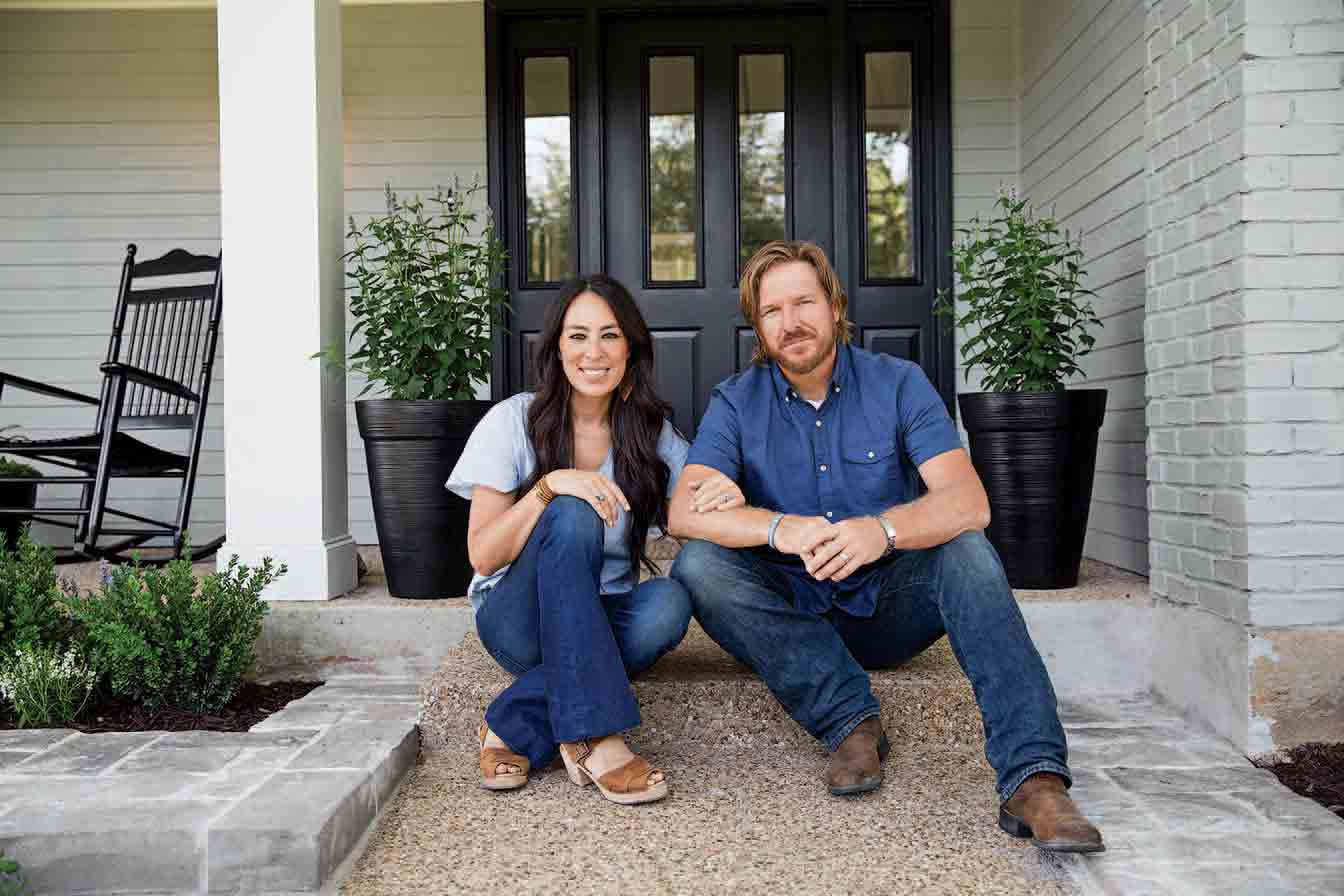
C&I: At the same time, living in a rural setting now, are you seeing any of your kids begin to dream of big-city life?
Gaines: I don’t doubt it at all. Isn’t that funny how that pendulum swings back and forth? My parents are both an example of that. Both were born and raised in little bitty Archer City, and they both hated how small their town was and felt a little insecure about it as kids. They’ve come to where they really respect it now, but it is funny. They were both excited to get out of Archer City, and Dad obviously went to Albuquerque, so he enjoyed that experience. But, boy, I wanted to be out in the country, and now that we’ve got this 40 acres, it will be fun. My oldest is 13, and he certainly acts the part, you know. He loves being out on the land. And anytime we say, “Hey, let’s go into town to do this and that,” it’s, “I don’t want to! I want to stay here. I’m going to go rope a goat!” But we’ll see. We’ll see. Lots of proof left to be put in the pudding. By the time he’s 18, he’s probably going to be like, “Listen, guys, I’m going to Los Angeles; check ya later.”
C&I: You write lovingly in Capital Gaines of your own boyhood baseball dreams, how they were stoked by your dad but ultimately squashed by reality when you couldn’t cut it on a college team. You were devastated at first, but eventually willed yourself out of a funk. To what do you credit such determination at a young age?
Gaines: Boy, I struggled. I wish I could say it was easy. It was not, man. I wallowed around and slept in late and didn’t go out. I fell off a cliff, if you will. But about a year after the baseball thing, I kind of fell into my first lawn-mowing gig. I ran into a guy that owned a lawn company and I asked him a few questions, and he just spoke into my life. It was just like, “Listen, man, this isn’t rocket science. You go buy some equipment, go get some yards, go take care of people. Here’s how it happens.”
And when I took that next step in the business sense, even though I was probably still a late junior or early senior at Baylor, it filled that void that baseball had left in its wake. I was still a student. I was still doing the thing, but I just didn’t have the extracurricular activity that baseball used to represent. And when I found business, which was just a simple lawn business ... I wish I was smart enough to say I was like Mark Zuckerberg and I was in a computer room somewhere creating the next cure to cancer. But for me, it was just about working, getting out, and just putting one foot in front of the other and sweating, doing some hard work, and learning Spanish a little bit.
C&I: There’s a wildly entertaining chapter that describes an ill-fated drive through Mexico on your way to a Spanish immersion school. Your truck broke down at one point, and you and your dog ended up in the crosshairs of a real bull in the middle of nowhere.
Gaines: Oh man, if you could have been a fly on a wall on that trip. ... I wish I could say that that was all made up, that it was a figment of my imagination. My dog Shiner went on that trip with me. He and I went coast to coast all the way down to Mexico, close to Cancún, Playa del Carmen area. And boy, did we have some experiences. Obviously, Shiner knows Spanish. I wish he was a better translator, but he obviously knew no Spanish then, and I only knew about 25 words. And so there we were in the middle of Mexico trying to find our way to and from the beach, and we had a heck of a journey for sure.
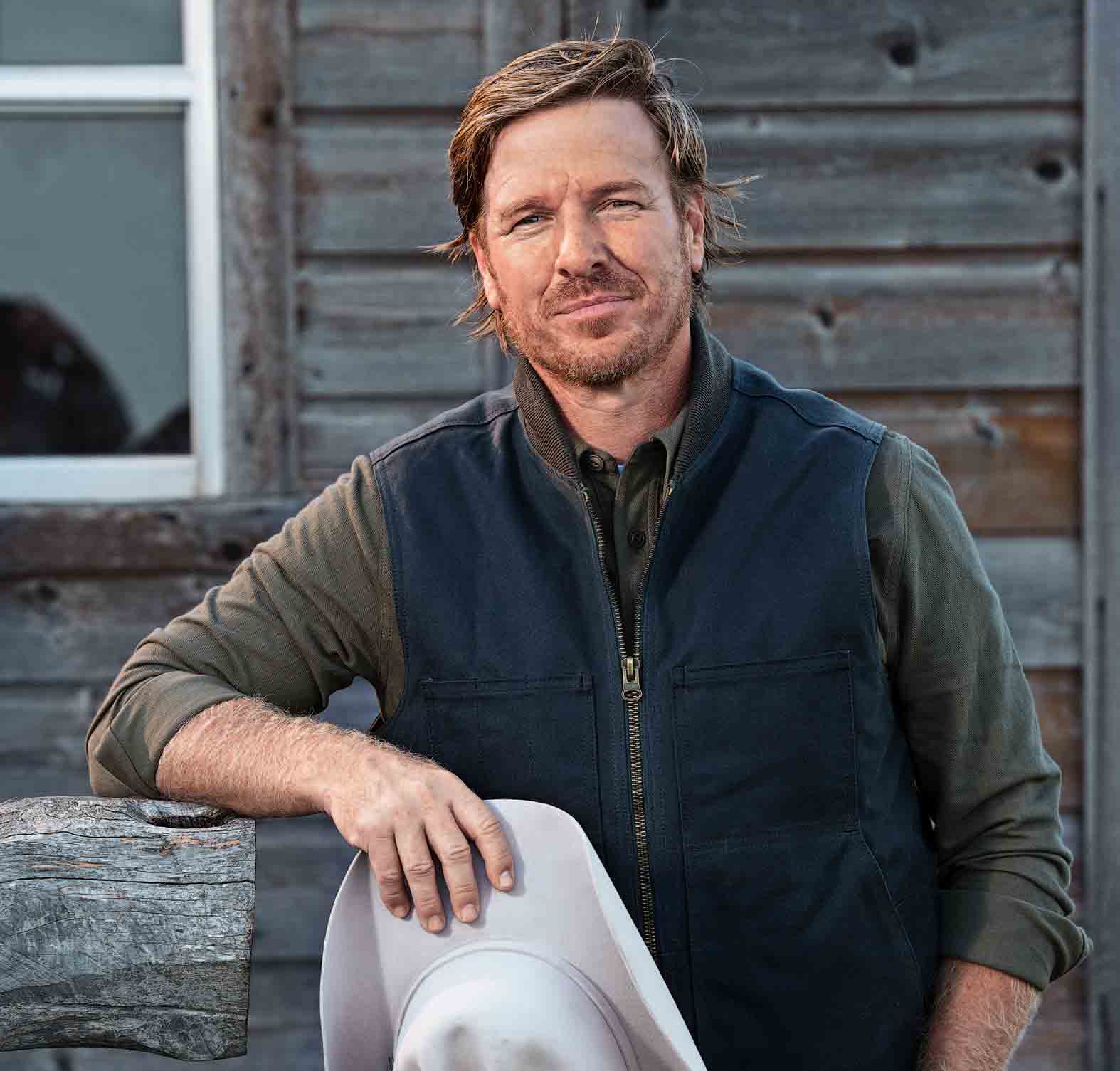
C&I: By the same token you saved yourself from being stranded by tracking down the family of one of your lawn-business co-workers. It speaks to the book’s ideas about being resourceful and thinking outside the box, not allowing oneself to be helpless or idle.
Gaines: One hundred percent. For me, I was just never status quo. Even now, I try not to be too obnoxious about it, because sometimes when you’re not a rule follower, that can get a bit heavy and even a little one-sided. My wife is ironically exactly opposite. She’s an extreme rule follower. She’s very cautious, very thoughtful. So I’ve been able to navigate the pros and cons of both of those concepts.
When I had to quit baseball, that seesaw fell out of balance almost instantly. Here I was in school going, “Wait, I hate this. I have no desire to do any of this stuff.” So when I got that business side of the equation, it really did balance that universe. I’d be running late to some complicated, high-level finance class and I’d be all dirty. And then I’d literally peel out five minutes before the bell rang and I’d run down the stairs and jump in my truck, go pick up some guys that mowed basically a block worth of grass, and I’d pick up that trailer and those guys, and we’d drop them off on another block, and I’d run back to class and try to catch the middle between. But I was never bored. There was never a dull moment. And my mind operates pretty efficiently in that chaotic place. I would say I’m more successful with too much on my plate than I am with too little on my plate. I’ve had seasons of too little to do, and I’m not a productive person in that place. I’m boring, I’m lazy.
C&I: You also went into a rental business during college, and you recount in the book stories about chasing down rent checks. I couldn’t picture you being stern or tough in that way — were you good at it?
Gaines: I was pretty poor. It was my last year of Baylor. I had two nicknames: I was either the “Mayor of Third Street” or I was the “slumlord,” because about 10 of my buddies that were in my inner circle were either renters of mine, or knew that I had some property. But I was not cut out for that. And that’s funny that you were able to sniff that out. I’ve got a real big heart. I’ve almost got a bleeding heart for people. I have a hard time being hard-nosed. I wish that I was fortunate enough to say that my dad just wrote me checks for all these properties that we would buy. But we would go to a bank and borrow real money on which he would basically cosign. Mortgages were really due. I had debt even at a young age like that.
And so I was kind and thoughtful when it came to this little thing and that little thing. But when it got down to, “Hey, it’s due on Friday, and if I don’t get this money all heck’s about to break loose,” I certainly got a little bit more motivated and a little bit more aggressive. I’ve got a couple of stories about becoming a private investigator of sorts to try to figure out how am I going to get the money before my credit falls off the cliff.
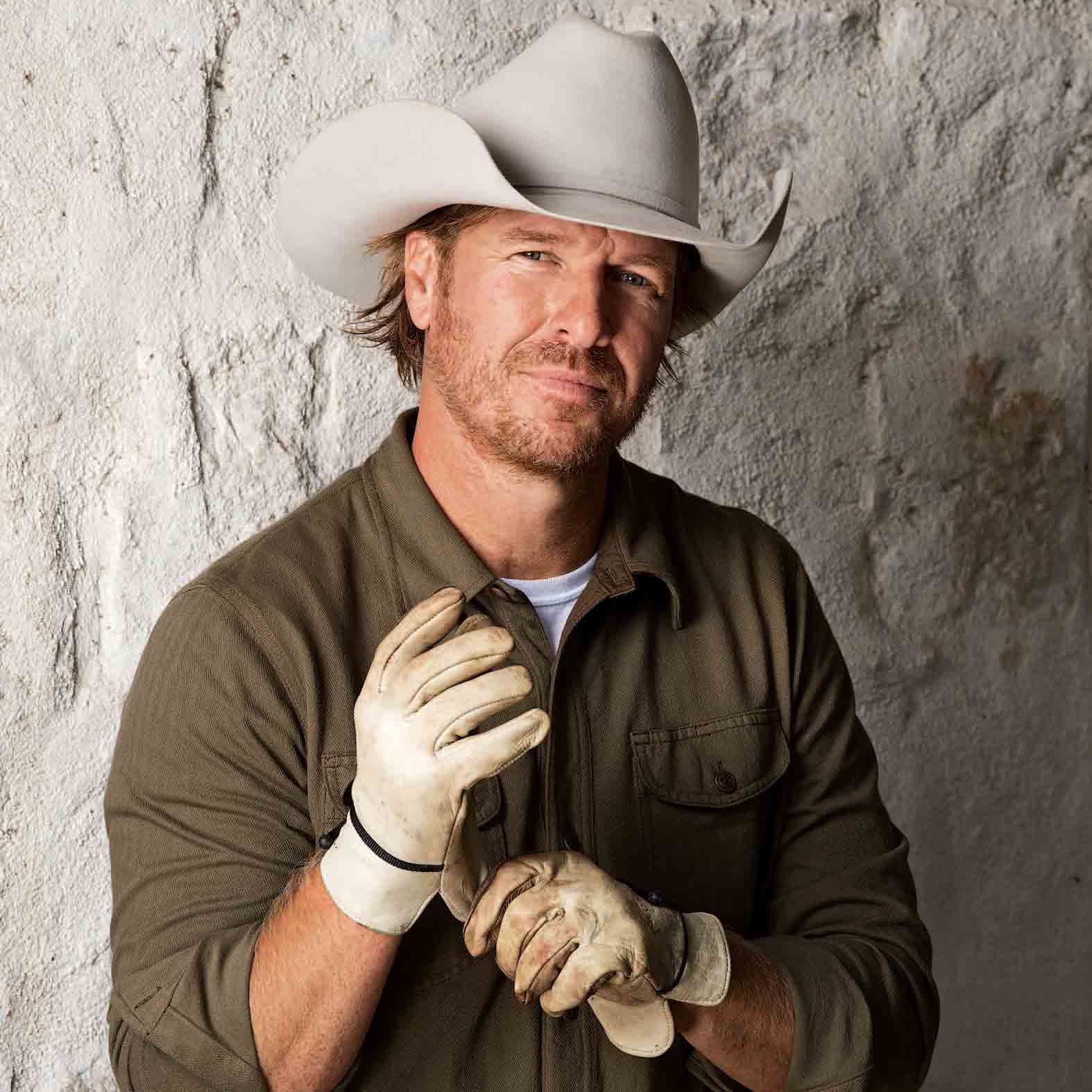
C&I: And you had to answer to your dad as well.
Gaines: Exactly. He’s a little bit sterner. He’s built a lot like my wife, to where steady wins the race. He’s always had a good, solid job and has always done the right thing. It didn’t take but a few minutes of him saying, “Chip, we’ve got two options. You either find those boys and get that money or we’re going to have a real problem here.” It definitely was the motivational speech that I needed at the moment.
C&I: Being older and wiser now, how do you know when your affinity for chaos has landed you in the doghouse? Does it only take a look?
Gaines: Oh yeah. Jo and I know each other; we have always been really good to each other. We believe that part of the magic in our marriage is just the simple fact that we care sincerely about one another. And boy, when either of us are off the tracks or kind of lost our minds in one way or the other, you know, a little look, a little side eye certainly goes a long way for sure. And she’s got a nasty one. She’s scary.
C&I: Overall, though, you don’t seem scared of much. You seem to recognize early in the book and throughout that a huge step for anyone is overcoming fear in life. Some never do. What do you think is the quality in you that made it possible early on?
Gaines: I think if I knew the answer to that, I could basically make that the lightning-in-a-bottle deal. Jo and I wrestle with that all the time: What was it about my upbringing? Very normal upbringing. Mom and dad, hard work, came from this small town. They’d ship me off in the summers to my granddad’s place. He was a man of few words. All he did was work. My mom and dad were great people. But what was it about it that gave me the insight to believe that failure was essentially part of the process, as opposed to something to be avoided at all costs? ...
My mom used to always say, “If you can get a man to the moon, we can figure this out.” And I just believed that. I believed that just because it was hard, didn’t mean that we weren’t supposed to work through it. I would knock on neighbors’ doors and sell them newspapers as a kid. I would walk around the neighborhoods in college asking people for yardwork before I even had any equipment. I couldn’t have mowed their yard even if I wanted to. But the bank guy that I dealt with had said, “Hey, if you can go get 20 yards and get contracts signed by 20 people, I’ll loan you this money to go buy this equipment.” So I went out and got 20 yards prior to even owning one piece of lawn equipment. And that was just the way I went, you know. I never thought twice.
For more on all things Gaines, visit magnolia.com.
From the January 2019 issue.














